

Published in the United States of America by Cherry Lake Publishing Ann Arbor, Michigan www.cherrylakepublishing.com Content Editor: Robert Wolffe, EdD, Professor of Teacher Education,
Bradley University, Peoria, Illinois Design and Illustration: The Design Lab Photo Credits: Page 5, MaszaS/Shutterstock, Inc.; page 8, Dmitriy Shironosov/Shutterstock, Inc.; page 12, Elena Korn/Shutterstock, Inc.; page 16, Mark Herreid/Dreamstime.com; page 17, cabania/Shutterstock, Inc.; page 19, Stephen Mcsweeny/Shutterstock, Inc.; page 21, Suzanne Tucker/Dreamstime.com; page 22, Panos Karapanagiotis/Shutterstock, Inc.; page 23, Georgios Kollidas/Dreamstime.com; page 26, Anthony Baggett/Dreamstime.com; page 29, JJ pixs/Shutterstock, Inc. Copyright 2012 by Cherry Lake Publishing All rights reserved. No part of this book may be reproduced or utilized in any form or by any means without written permission from the publisher. Library of Congress Cataloging-in-Publication Data Taylor-Butler, Christine. Think like a scientist in the gym/by Christine Taylor-Butler. cm.(Science explorer junior) Includes bibliographical references and index. cm.(Science explorer junior) Includes bibliographical references and index.
ISBN 978-1-61080-163-8 (lib. bdg.) 1. PhysicsExperimentsJuvenile literature. 2. SchoolsExercises and recreationsJuvenile literature. Title. II. Series. Series.
QC25.T39 2011 507.8dc22 2010053575 Cherry Lake Publishing would like to acknowledge the work of The Partnership for 21st Century Skills. Please visit www.21stcenturyskills.org for more information. Printed in the United States of America Corporate Graphics Inc. July 2011 CLFA09 How Does That Work?  Have you ever looked at something and wondered, How does that work? Scientists do that all the time. Even in a school gymnasium.
Have you ever looked at something and wondered, How does that work? Scientists do that all the time. Even in a school gymnasium.  A gym is a great place for sports.
A gym is a great place for sports.
You can also use a gym to learn a lot about science. How fast can you run? How far can you throw? How high can you jump? Scientists study physics to find the answers to these questions. Athletes can use this information to improve their skills. STEP-BY-STEP You can get your own answers by thinking like a scientist. Go step by step.
- Observe what is going on.
- Ask a question.
- Guess the answer.
- Observe what is going on.
- Ask a question.
- Guess the answer.
This is called a hypothesis .
- Design an experiment to test your idea.
- Gather materials to test your idea.
- Write down what happens.
- Make a conclusion .
 Use words and numbers to write down what youve learned. Its okay if the experiment doesnt work. Try changing something, and then do the experiment again.
Use words and numbers to write down what youve learned. Its okay if the experiment doesnt work. Try changing something, and then do the experiment again.  GET THE FACTS
GET THE FACTS Scientists look for facts before they start an experiment. They use this information as a place to start. Where can you find information? A library is filled with books, magazines, and science videos that can help you.
Scientists look for facts before they start an experiment. They use this information as a place to start. Where can you find information? A library is filled with books, magazines, and science videos that can help you. You can talk to a coach or an athlete. You can visit a museum, too. You can also find facts on the Internet. Be careful. Not everything on the Internet is the truth.  Breathe Deep
Breathe Deep ASK A QUESTION When you play sports, your heart beats faster.
ASK A QUESTION When you play sports, your heart beats faster.  Breathe Deep
Breathe Deep ASK A QUESTION When you play sports, your heart beats faster.
ASK A QUESTION When you play sports, your heart beats faster.
Your breathing gets faster, too.  When you get tired, you stop to catch your breath. When you sit down, your heart slows down. What is happening? DO THE RESEARCH A scientist named Leonardo da Vinci had a big idea. He knew that when people worked hard, they breathed faster. He guessed that breathing fast helped pump more blood to your muscles.
When you get tired, you stop to catch your breath. When you sit down, your heart slows down. What is happening? DO THE RESEARCH A scientist named Leonardo da Vinci had a big idea. He knew that when people worked hard, they breathed faster. He guessed that breathing fast helped pump more blood to your muscles.
His idea was wrong, but he was close. 
 When you exercise, you breathe hard to give your blood more oxygen . Your heart beats faster to pump the blood to your body. A pulse is a way to measure your heart rate. What are some good places on your body to measure your pulse? Try your neck, wrist, and ankle. Which one works best? DO AN EXPERIMENT
When you exercise, you breathe hard to give your blood more oxygen . Your heart beats faster to pump the blood to your body. A pulse is a way to measure your heart rate. What are some good places on your body to measure your pulse? Try your neck, wrist, and ankle. Which one works best? DO AN EXPERIMENT Measure your pulse before you play a sport.
Measure your pulse before you play a sport.
Use a clock or stopwatch. Count the number of beats in 60 seconds. Write down the number. Measure your pulse after 5 minutes of exercise. Measure it again after 10 minutes of exercise. Is there a difference? Measure your pulse when youre finished playing.
Measure it again after 10 minutes of resting. Did it return to normal? Scientists like to repeat their experiments to see if they get the same answer. What happens if you try your experiment again? What is your conclusion?  Track It!
Track It! ASK A QUESTION Have you ever watched a track meet at school? Runners win a medal by going faster than anyone else in the race. Some runners work hard to be faster than anyone else in the world. Do girls run faster than boys? Do short runners run as fast as tall ones? Can you run faster in your bare feet or with shoes? How would you test your ideas? Where can you find clues to help you get started?
ASK A QUESTION Have you ever watched a track meet at school? Runners win a medal by going faster than anyone else in the race. Some runners work hard to be faster than anyone else in the world. Do girls run faster than boys? Do short runners run as fast as tall ones? Can you run faster in your bare feet or with shoes? How would you test your ideas? Where can you find clues to help you get started? 



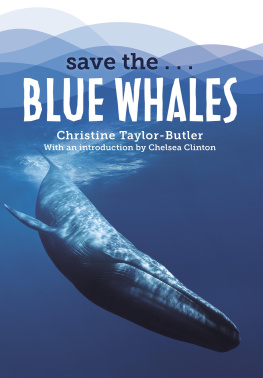
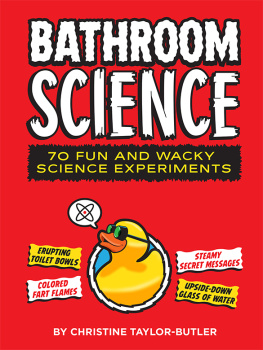

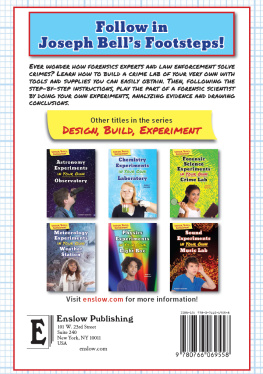
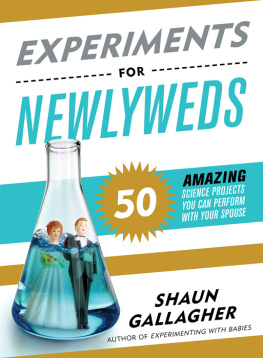

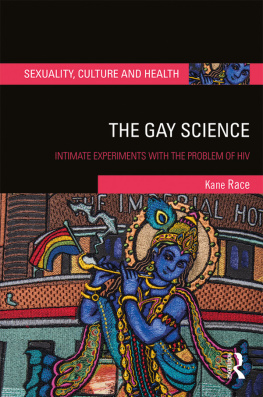
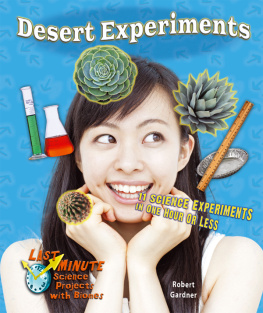


 Published in the United States of America by Cherry Lake Publishing Ann Arbor, Michigan www.cherrylakepublishing.com Content Editor: Robert Wolffe, EdD, Professor of Teacher Education,
Published in the United States of America by Cherry Lake Publishing Ann Arbor, Michigan www.cherrylakepublishing.com Content Editor: Robert Wolffe, EdD, Professor of Teacher Education, Have you ever looked at something and wondered, How does that work? Scientists do that all the time. Even in a school gymnasium.
Have you ever looked at something and wondered, How does that work? Scientists do that all the time. Even in a school gymnasium.  A gym is a great place for sports.
A gym is a great place for sports. Use words and numbers to write down what youve learned. Its okay if the experiment doesnt work. Try changing something, and then do the experiment again.
Use words and numbers to write down what youve learned. Its okay if the experiment doesnt work. Try changing something, and then do the experiment again.  GET THE FACTS
GET THE FACTS Scientists look for facts before they start an experiment. They use this information as a place to start. Where can you find information? A library is filled with books, magazines, and science videos that can help you.
Scientists look for facts before they start an experiment. They use this information as a place to start. Where can you find information? A library is filled with books, magazines, and science videos that can help you.  Breathe Deep
Breathe Deep ASK A QUESTION When you play sports, your heart beats faster.
ASK A QUESTION When you play sports, your heart beats faster.  When you get tired, you stop to catch your breath. When you sit down, your heart slows down. What is happening? DO THE RESEARCH A scientist named Leonardo da Vinci had a big idea. He knew that when people worked hard, they breathed faster. He guessed that breathing fast helped pump more blood to your muscles.
When you get tired, you stop to catch your breath. When you sit down, your heart slows down. What is happening? DO THE RESEARCH A scientist named Leonardo da Vinci had a big idea. He knew that when people worked hard, they breathed faster. He guessed that breathing fast helped pump more blood to your muscles.
 When you exercise, you breathe hard to give your blood more oxygen . Your heart beats faster to pump the blood to your body. A pulse is a way to measure your heart rate. What are some good places on your body to measure your pulse? Try your neck, wrist, and ankle. Which one works best? DO AN EXPERIMENT
When you exercise, you breathe hard to give your blood more oxygen . Your heart beats faster to pump the blood to your body. A pulse is a way to measure your heart rate. What are some good places on your body to measure your pulse? Try your neck, wrist, and ankle. Which one works best? DO AN EXPERIMENT Measure your pulse before you play a sport.
Measure your pulse before you play a sport. Track It!
Track It! ASK A QUESTION Have you ever watched a track meet at school? Runners win a medal by going faster than anyone else in the race. Some runners work hard to be faster than anyone else in the world. Do girls run faster than boys? Do short runners run as fast as tall ones? Can you run faster in your bare feet or with shoes? How would you test your ideas? Where can you find clues to help you get started?
ASK A QUESTION Have you ever watched a track meet at school? Runners win a medal by going faster than anyone else in the race. Some runners work hard to be faster than anyone else in the world. Do girls run faster than boys? Do short runners run as fast as tall ones? Can you run faster in your bare feet or with shoes? How would you test your ideas? Where can you find clues to help you get started? 